ICR Group has achieved a prestigious milestone in the renewables sector.
The company has been awarded Fit For Offshore Renewables (F4OR) status – which acknowledges UK supply chain enterprises possessing the requisite expertise, skills and proficiency to excel in the sector.
The F4OR programme has been developed in collaboration with industry experts and is spearheaded by ORE Catapult, a leading innovation centre for offshore renewable energy.
ICR was supported by ORE Catapult and business consultancy Opergy during this process. ICR will continue to update the F4OR team on key company developments including contract wins – such as its drone inspections on turbines – to help measure the overall impact of the programme.
Hollie Lawson, Corporate Development Director & ESG Champion at ICR, said: “To be granted F4OR status is testament to the great deal of time, energy and resources we have applied to position ICR to support the renewables sector, and signals our future aspirations in the market.
“We have developed strategies for improving our capacity to deliver services in the sector and the F4OR achievement is further evidence of our commitment to that wider agenda. We are resolutely focused on our environmental, social and governance (ESG) impacts and net zero goals to accelerate our energy transition objectives, including the publication of an annual Impact Report to ensure transparency and disclosure in line with best practice.”
F4OR is delivered by ORE Catapult. The programme is based on F4N, devised by Nuclear AMRC (Advanced Manufacturing Research Centre).
ICR Group has recorded its highest turnover since the business was launched in 2011 – with the Middle East playing a key role in the firm’s success.
ICR, a technology-focused provider of specialist maintenance, inspection and integrity solutions across multiple sectors, has seen increased demand across its core energy sector operations, following the roll-out of an internationalisation strategy and diversification into other sectors.
The UK firm’s turnover for its 2022-23 year-end was £41.7m, a 20% increase on its previous financial year. Headcount has increased globally by 15%, from 204 to 235, since May 2022, and the company expects to create around 50 jobs across its operations during the next phase of its strategy.
Jim Beveridge, Chief Executive Officer at ICR, said: “Our presence in the Middle East has been particularly noteworthy, with recent high-value projects completed in the United Arab Emirates, Qatar and Saudi Arabia. We have also solidified our presence in the region by appointing a new partner in Abu Dhabi.
“Our ongoing international expansion not only bolsters our long-term sustainability but also plays a vital role in creating meaningful and enduring employment opportunities, rightly positioning us as a contributor to the energy transition.
“The Middle East is a dynamic market, brimming with potential for innovative companies such as ICR. At ADIPEC, we are eager to foster deeper relationships with our partners and engage with organisations striving to achieve their net-zero objectives. With COP28 on the horizon, our industry must remain steadfast in its commitment to facilitating a just transition toward a lower-carbon future.”
ICR’s established technological solutions continue to play a significant part in its growth. Technowrap provides life-long repairs that can be applied to internal, external and through-wall defects on complex geometries, while INSONO is an innovative NDT (non-destructive testing) technique for the inspection of engineered composite repairs. The Technowrap repair system reduces emissions by 66% compared to the traditional replacement methods.
Quickflange offers cold work solutions with weldless, high-performance flange-to-pipe connections. It provides a permanent repair option for improving pipeline integrity and flow assurance, eliminating the need for welding or hot work. ICR’s drone division, Sky-Futures, has also secured further international work.
NAMA Development Enterprises is ICR Group’s sponsor in Abu Dhabi, while its new execution partner in Abu Dhabi is APS.
ICR Group and NAMA Development Enterprises will be exhibiting at Stand 6210 at ADIPEC.
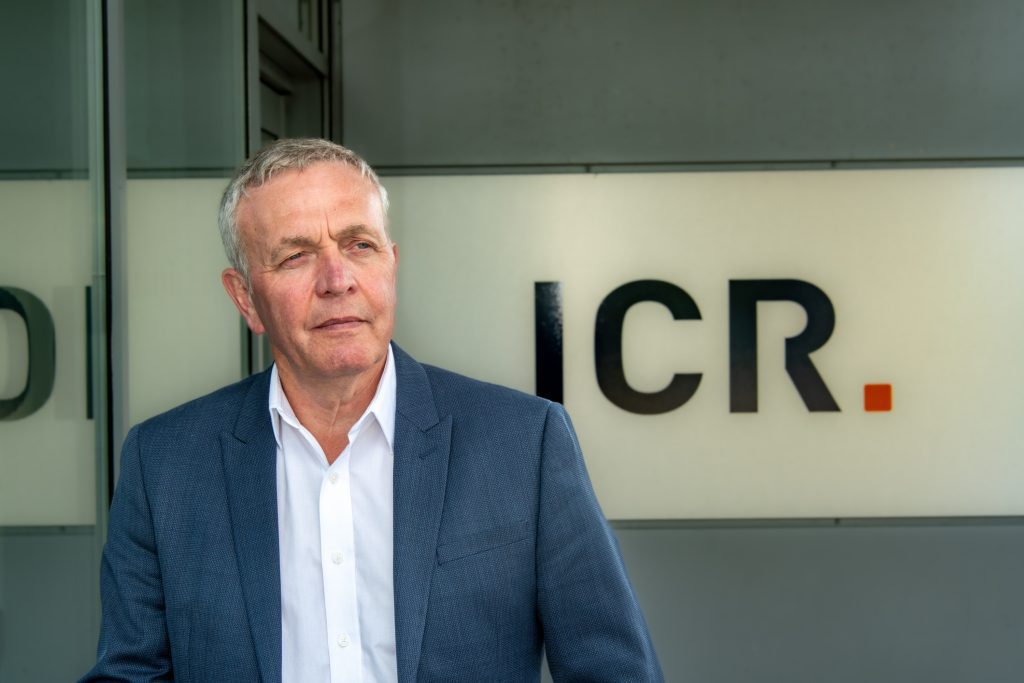
ICR Group has recorded its highest turnover since the business was launched in 2011 – and is set to grow its workforce significantly over the next year.
The Aberdeen-headquartered firm’s turnover for its 2022-23 year-end was £41.7m (US$54m), a 20% increase on its previous financial year.
ICR, a technology-focused provider of specialist maintenance inspection and integrity solutions across multiple sectors, has seen growth driven by strong activity in its core energy sector operations, the roll-out of an internationalisation strategy and diversification into other sectors.
Headcount has increased globally by 15%, from 204 to 235, since May 2022, and the firm expects to create around 50 jobs across its operations during the next phase of its strategy.
ICR has additional UK offices in Carnforth and Hemel Hempstead, and international operations in Stavanger, Norway, Abu Dhabi, Houston, USA and Perth, Australia as well as partners in over 25 countries.
Jim Beveridge, ICR Chief Executive Officer, said: “This is extremely positive growth for our business and is testament to the hard work and drive of our team. The continued internationalisation of ICR further supports our long-term sustainability, ultimately helping to create meaningful and lasting jobs to make us part of the energy transition.
“These outcomes illustrate how the business is remaining relevant across multiple sectors as we diversify our portfolio while maintaining and developing opportunities in existing markets. These are exciting times for ICR as we repeatedly demonstrate our value-adding capabilities and consequently strengthen our market position.”
Alan McQuade, Group Managing Director at ICR, said: “We retain a strong position in the UK but more than half of ICR’s revenue is now generated in international markets. Our global operations and network of strategic partners mean that we can react quickly to customer requirements and this footprint provides access to further growth for ICR. As we aim to capitalise on these opportunities, we are actively seeking to expand our team across all operations.”
ICR remains a strong performer in the UK North Sea and Norwegian North Sea in particular, while also growing its international footprint.
With record activity in the Middle East – it has recently performed high-value work in UAE, Qatar and Saudi Arabia, and appointed a new partner in Abu Dhabi – this is also a key region of growth for ICR.
While oil and gas remains a core industry, ICR has an additional focus on new onshore industries, with diversified growth foundations in place across renewables, telecoms, petrochemicals, nuclear and defence.
Further record activity in the USA now sees a team of 18 in Houston, with onshore telecoms drone inspection work through newly secured contracts and regular Gulf of Mexico repair scopes.
ICR’s drone division, Sky-Futures™, has secured UK and further international work. A global leader in unmanned aircraft and remote sensing operations, Sky-Futures™ and its team support clients by delivering high-quality inspection reports and data in support of asset build or inspection programmes.
Earlier this year, ICR secured a new partner in Guyana and increased its footprint in West Africa.
ICR’s established technological solutions continue to play a significant part in its growth. Technowrap™ provides life-long repairs that can be applied to internal, external and through-wall defects on complex geometries, while INSONO™ is an innovative NDT (non-destructive testing) technique for the inspection of engineered composite repairs. The Technowrap™ repair system reduces emissions by 66% compared to the traditional replacement methods.
Quickflange™ offers cold work solutions with weldless, high-performance flange-to-pipe connections. It provides a permanent repair option for improving pipeline integrity and flow assurance, eliminating the need for welding or hot work. With an extensive range, Quickflange™ is a cost-effective and efficient solution generating up to 80% time saving and a 57% reduction in greenhouse gas emissions over traditional welding. Welding and hot work are energy intensive processes requiring multiple materials whereas the Quickflange™ technology offers a straightforward repair system that is less energy intensive and requires fewer specialist engineers.
ICR has made a commitment to environmental, social and governance (ESG) and net zero goals to accelerate its energy transition objectives. This includes the publishing of an annual Impact Report to ensure transparency and disclosure in line with best practice. ICR has been awarded the prestigious EcoVadis Silver Award for its commitment to sustainability.
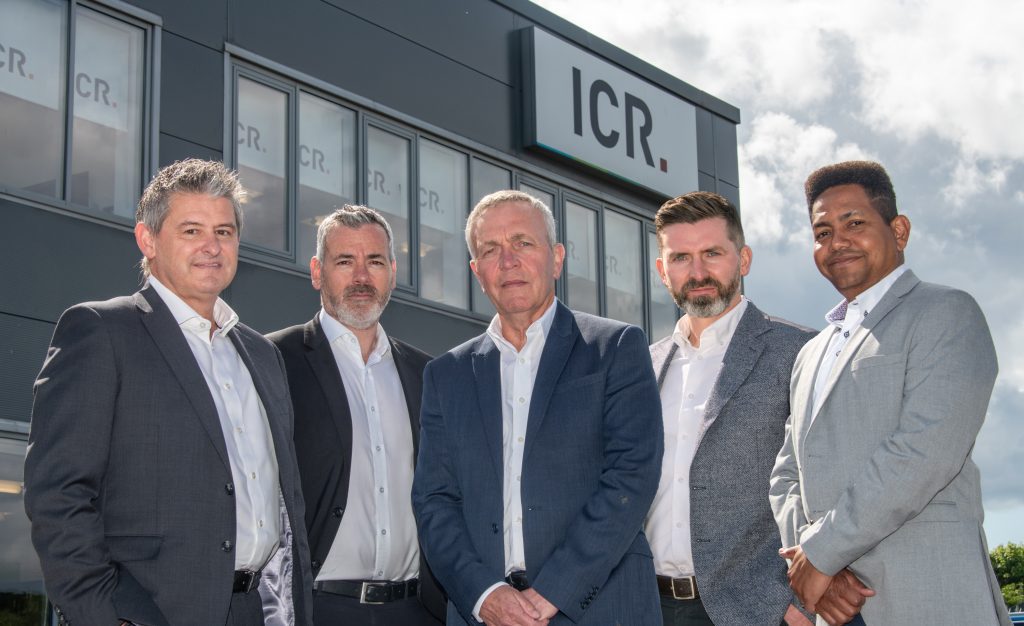
ICR Integrity’s chief executive, Jim Beveridge, looks to keep the firm “relevant” by looking to the energy transition.
“I strongly believe that as a business standing still is not an option,” he told Energy Voice.
“The energy transition is moving at a rapid pace, and you really need to be part of that solution rather than perceived to be part of the problem.”
The ICR chief executive believes in moving with the times as the energy sector, along with the rest of the world, looks to reduce emissions and reach net zero goals.
Mr Beveridge explains the importance of evolving and not becoming “a Kodak and don’t change, then you can lose market position.”
He explains: “I’m genuinely passionate about trying to make this business sustainable in the long term, to create jobs that are going to be lasting and meaningful and being part of the energy transition.”
From ambition to action
Ambitions of supporting the energy transition are a great thing, however, it is action that will see the industry reach emissions goals. ICR understand this and has developed products to help reduce the North Sea’s impact on the environment.
The north-east firm is producing “Greener resins”; working with Robert Gordon University, ICR has produced a product that is 30% plant-based.
This development reduces the emissions created during the firm’s manufacturing process.
The company boss said that all his business’s products are being “approved by Lloyds so that we’ve got proper third-party accreditation for what we’re saying that we’re doing.”
ICR Integrity has a base in Bridge of Don, Aberdeen
ICR has also developed a ‘Technowrap’ composite repair which can offer a client a 66% saving in carbon by opting for this over a conventional welded type, according to Mr Beveridge.
“Our Quickflange product offers a 40% reduction between a conventional welded defect repair and the cold work one,” Beveridge added.
This patented tool enables the firm to provide pipeline repair without the use of welding. The process involves locating the source of a leak, cutting the area out and sliding a modified standard flange over the pipe end.
From there the firm’s Quickflange connector will then be attached to the pipe end where the cone of the tool extends allowing the segments to warp into the groves of the flange.
The tool is then reversed, finishing the installation and creating a gas-tight seal.
Not leaving oil and gas in the lurch
The development of greener technologies to reduce the carbon footprint of both its own manufacturing and the emissions created by its customers is important to ICR and its boss, however, Mr Beveridge made it clear “We’re not exiting hydrocarbons. I just want to be seen to be part of a solution.”
He said that when he took over last year 85% of business was coming from oil and gas “I’m trying to take the business into maybe a more 60-40% basis,” the boss explained.
The chief executive says that he would like to be sitting close to this goal within three years.
That being said, Mr Beveridge returned to the point of not turning his back on oil and gas, explaining: “I’m not going to give up the opportunities that exist in existing markets.”
Jim Beveridge says that his ambition to increase the representation of renewables customers in the list of ICR’s clients was welcomed by the team.
He said: “It’s a team that drives change, I can steer the ship and point us in the direction, but it’s a team that ultimately goes and delivers that.
“The message has been sold to the team about what this means for the business.
“We’re creating a long-term sustainable business where the synergies are for how we operate in efficiency and then how we can look cross-sell our products across what would have been those defined service lines.”
Who is Jim Beveridge?
The ICR boss took over the engineering firm in April 2022 after leavening Wood following almost 19 years of service.
His most recent role with Wood saw him stationed in Brunei where he assumed the role of senior vice president for Asia Pacific Central.
He has also worked in roles where he was responsible for operations in Africa, and he held a business manager position while based in Aberdeen.
Mr Beveridge explains that due to his previous positions at he has “a large international footprint” and when he got the top job at ICR, this was something the firm was looking for.
“They were looking for someone who could support further in the internationalisation of this business.”
The ICR boss added that throughout his tenure, he looks to ensure that his brand remains relevant throughout the transition and grasp the opportunities coming from “future markets.”
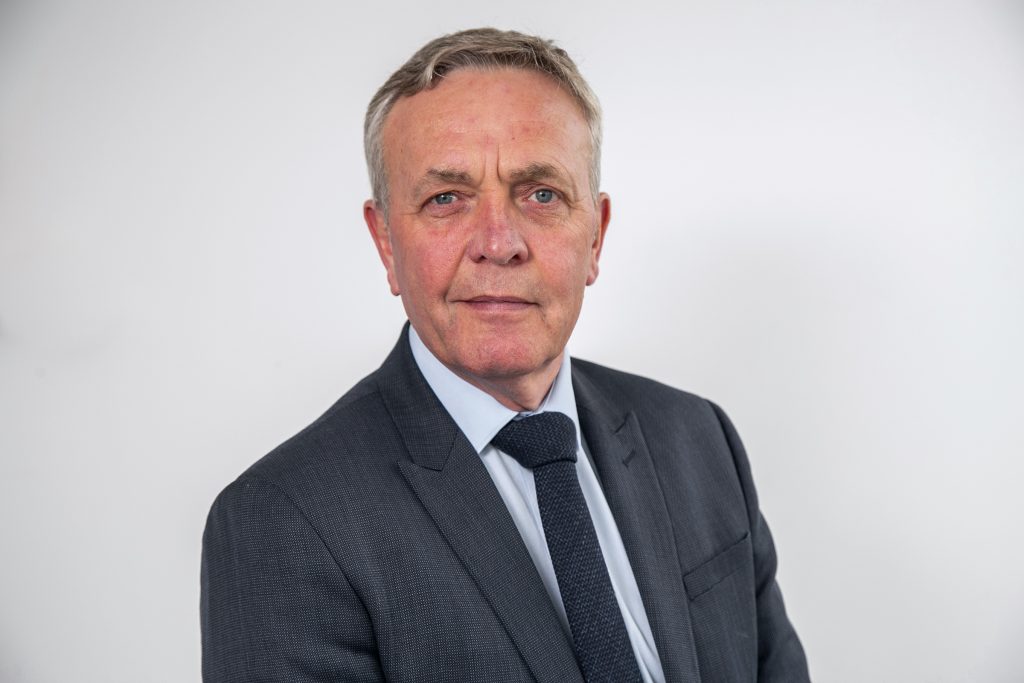
To read the article on Energy Voice, click here
In a remarkable display of determination and compassion, a group of dedicated colleagues from ICR, comprising, Katie Francis- HR Director, Robyn Scott – HR Advisor Alannah Dias – HR Coordinator, Lesley Hamilton – Financial Controller, Jing Zhou – Senior Accountant, and their supportive friends, successfully completed the 17.8-mile ‘Mighty Stride’ Kiltwalk at the weekend. The team’s journey began at Duthie Park in Aberdeen, along the scenic Deeside railway line, and culminated at Bellfield Park in Banchory. Their commitment and determination was in support of The British Heart Foundation (BHF), the chosen charity partner for ICR for 2022-23.
The Kiltwalk event, provided an ideal platform for the team to make a tangible difference. As the final fundraising event on behalf of the BHF, the occasion particularly poignant as it was dedicated to the memory of our colleague, Gary McVicar. Moreover, the team’s efforts aimed to extend heartfelt support to all those affected by the loss or illness of individuals battling heart problems.
Katie Francis, HR Director, commented: “We were delighted to participate in the Kiltwalk for the second year running, to show our support for the British Heart Foundation. It was a great opportunity to socialise with colleagues as well as supporting our chosen charity partner. The rare appearance of the Scottish sunshine along with the beautiful Aberdeenshire countryside certainly helped us along the 17.8 miles.”
The British Heart Foundation, renowned for its tireless efforts in cardiovascular research, prevention, and support, resonated deeply with the team and their fundraising objectives. Heart disease continues to be a prevalent health concern worldwide, affecting countless lives. By aligning their efforts with the BHF, the team demonstrated their dedication to raising awareness and vital funds to combat this pervasive condition.
To donate and support their cause, please visit https://www.justgiving.com/campaign/icr
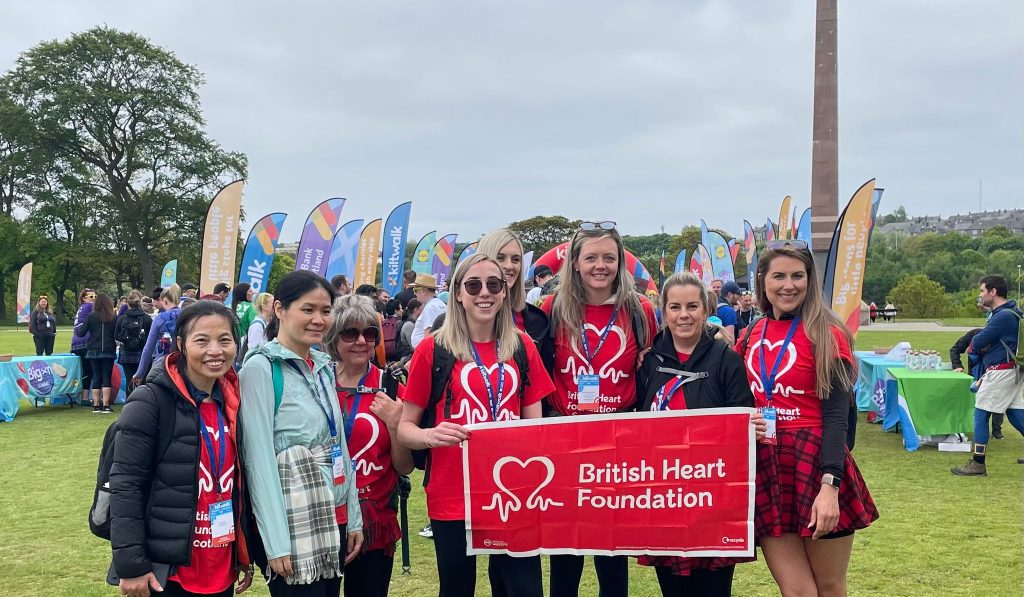
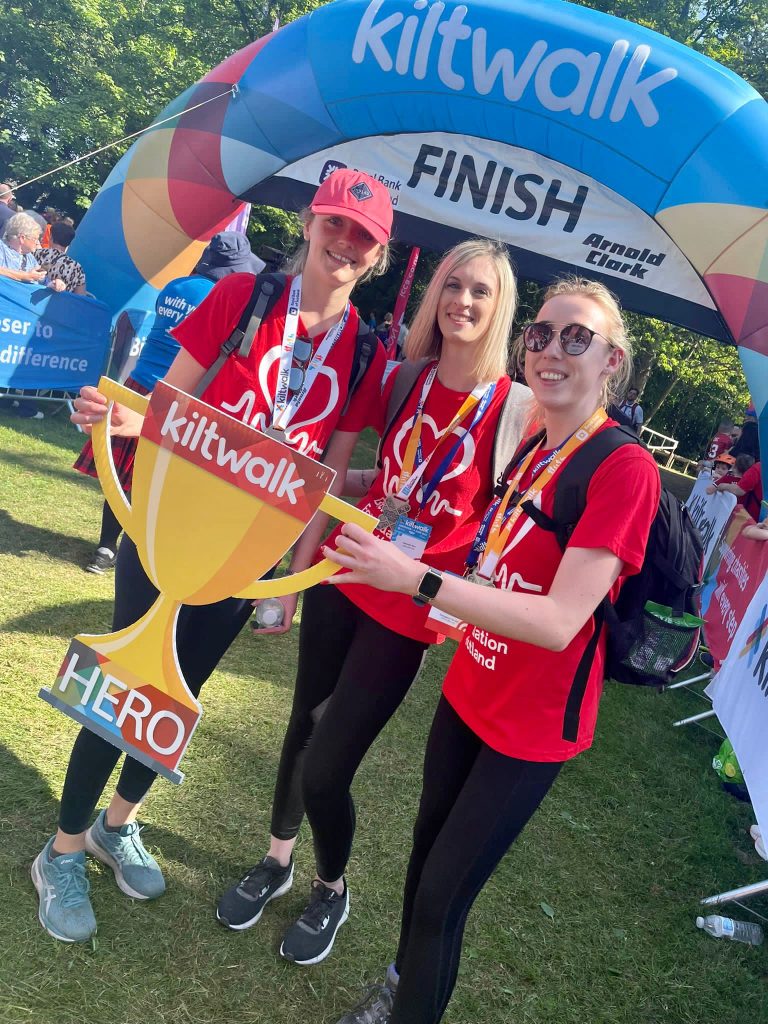
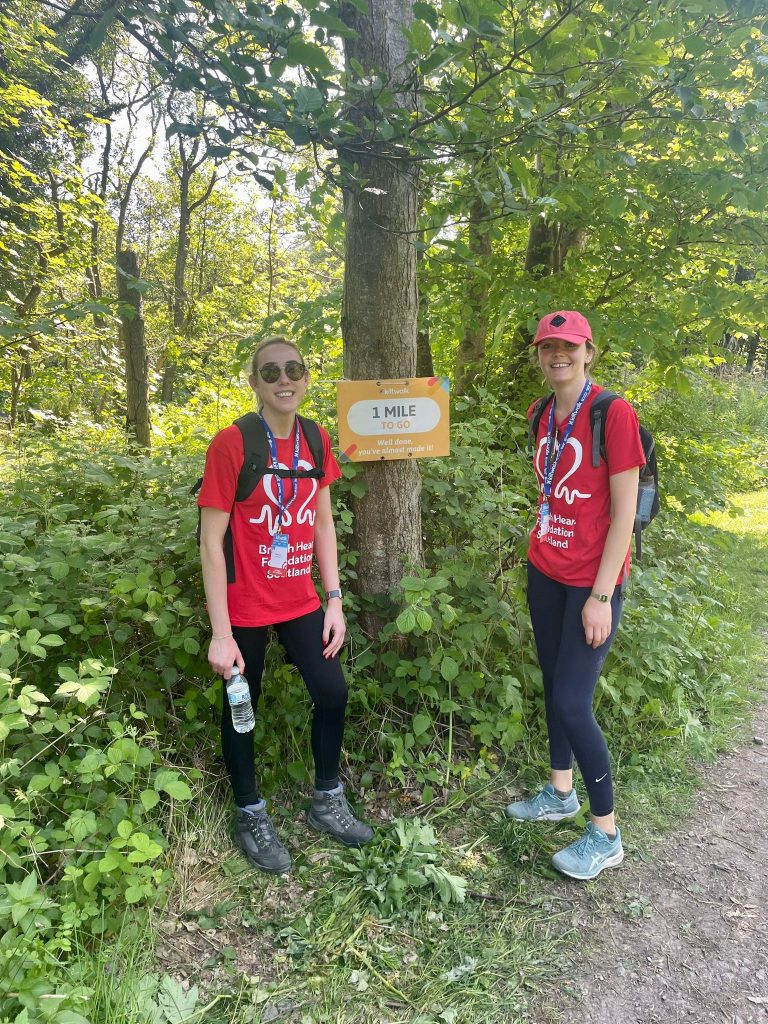
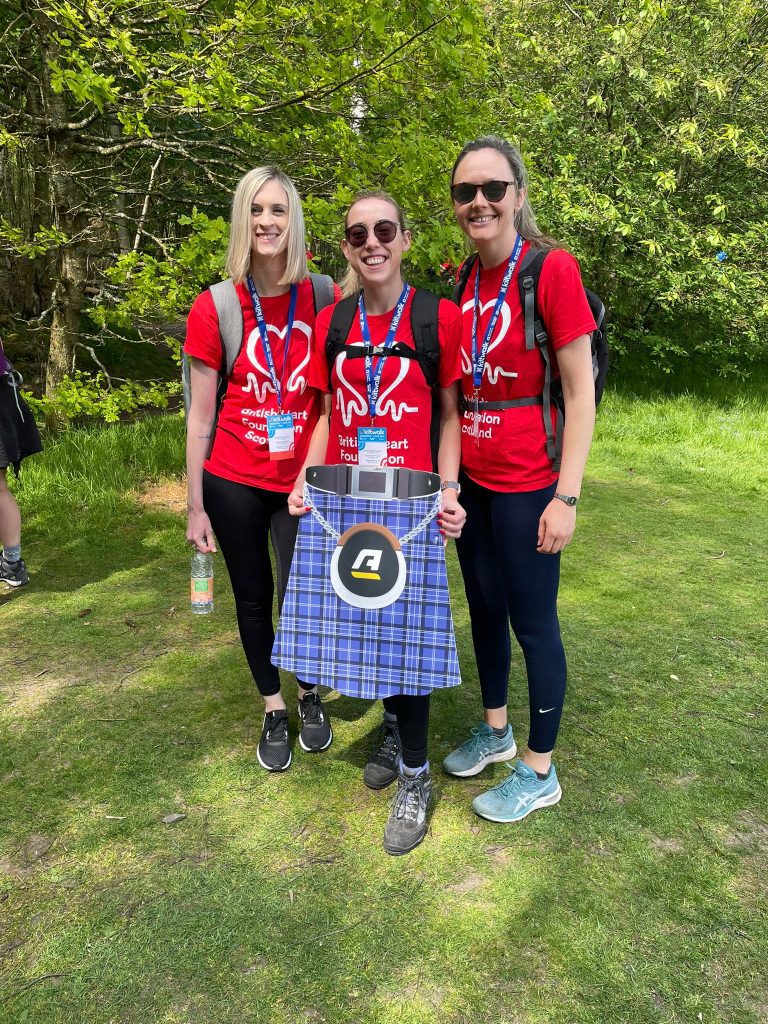
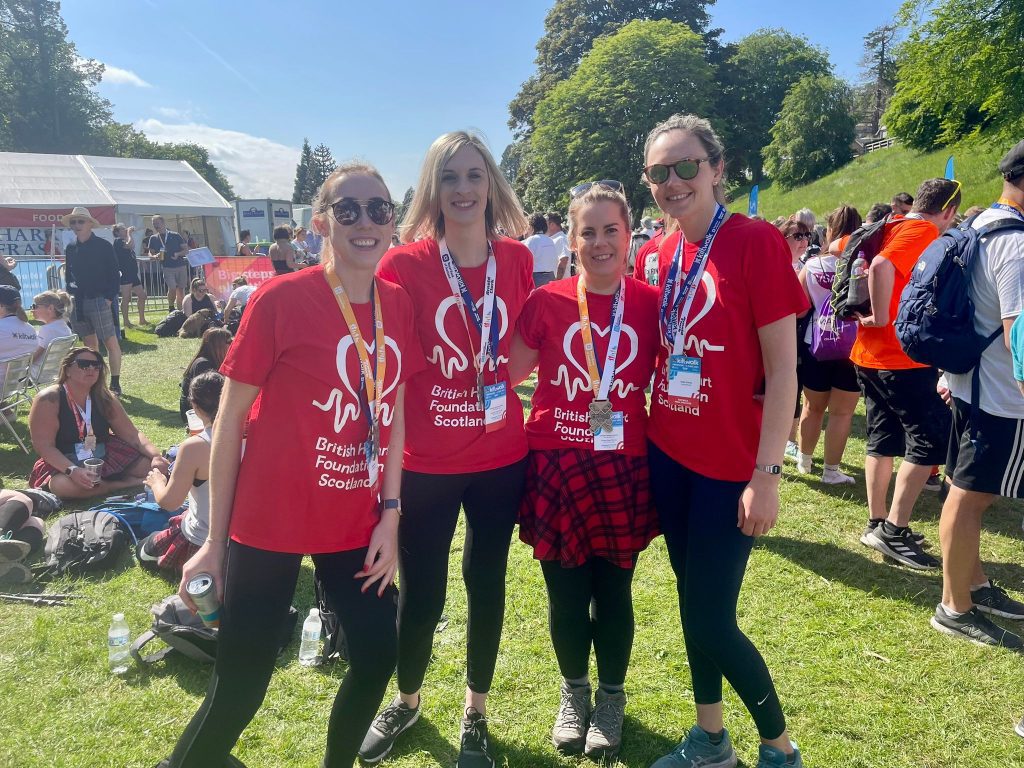
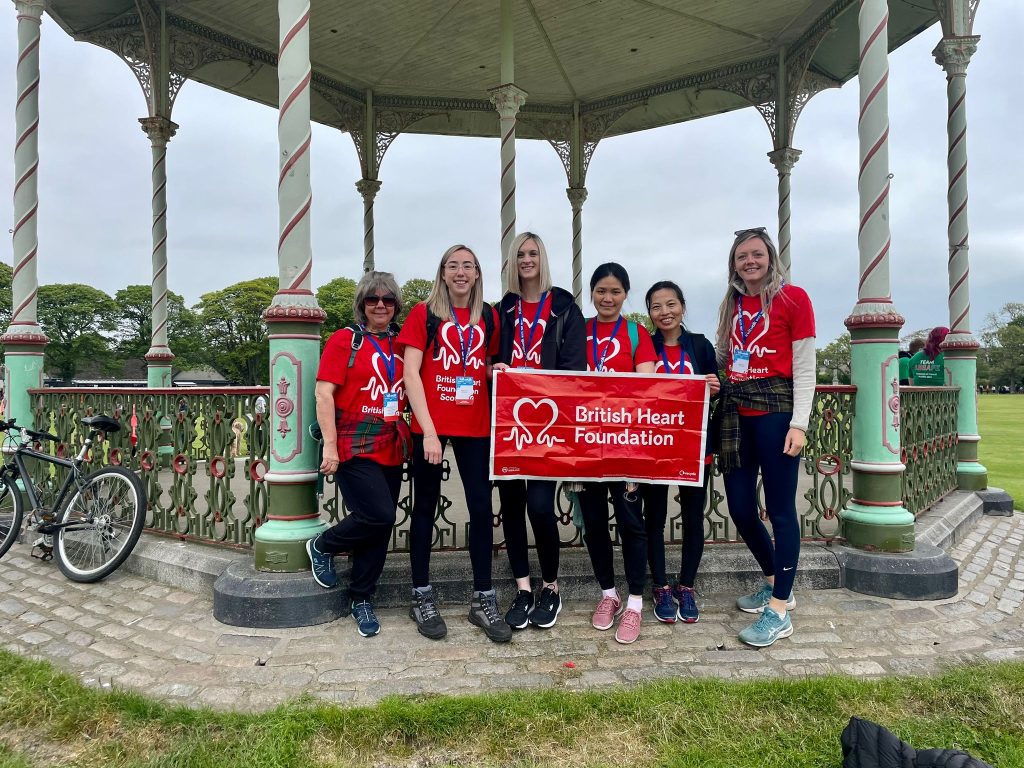
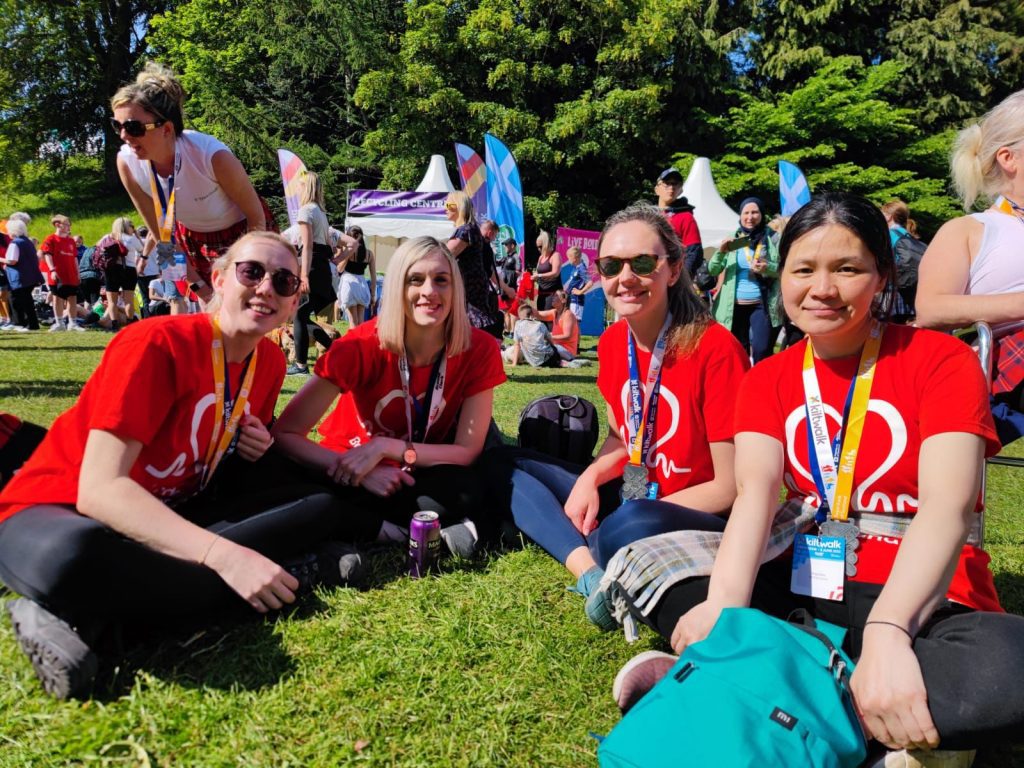
“ESG is not necessarily about being truly innovative or taking a brand-new approach, it’s about measuring and enhancing current practices and recognising where improvements can be made, as well as being conscious of how your actions impact what’s going on around you,” says Hollie Lawson, Corporate Development Director, and Economic Social & Governance (ESG) Champion of ICR Integrity Ltd.
After joining ICR in 2014 as Commercial Manager, Hollie has since worked in associated roles in the company progressing from Commercial and Procurement Director in 2016 to Corporate Development Director and ESG Champion overseeing all related activities. She reflected,
“My appointment to ESG Champion in November in 2021 was made after identifying a need to focus our efforts in promoting ESG in the business. By December, a committee was established to identify a baseline of ESG practices and set targets on how to achieve these objectives.”
Enhancing the focus on ESG through employee communication to all stakeholders, educating our employees on what ESG means for ICR and ultimately raising the profile of ESG within the business, the committee has been an invaluable addition to the company’s structure.
She commented “The committee comprises our key support functions which all directly contribute to ESG. We also recognise and acknowledge that we are not experts in assessing our impact so we consulted Sustainable Advantage to aid us with baselining our current data and to help structure our ESG objectives, whilst helping to identify ways to incorporate new sustainable strategies into our business.
The focus on ESG prompted the business to reconsider its purpose. “We want to ensure that we contribute to sustainable development, as we work towards transitioning to Net Zero, whilst having a positive impact on our employees, customers, and communities where we operate.
Following the creation of the ESG committee and nomination of ESG Champion to maintain strategic focus and drive progress, Hollie commented on the journey, “Once the outline plan was established, we focused on baselining our carbon emissions and implementing a defined set of objectives”
Hollie experienced challenges along the way with data gathering being the most prominent. She commented “We experienced challenges with data gathering as getting access to the information could be difficult at times. To set specific targeted objectives we had to be thorough to ensure we attained the correct metrics and identify a baseline for reporting purposes. We also had to take into consideration our other facilities and employees that were not based in the Aberdeen Headquarters.
“As part of the data gathering process, I conducted workshops with each of the business divisions to brainstorm what they do well in terms of ESG, and what they could do better. It was an inclusive process that was engaging and aimed to involve everyone so although initially perceived as a challenge, it was incredibly beneficial.”
ICR defined key targets for the year ahead following the initial baselining of data to support ICR’s purpose. “For 2022, we identified four key areas we hoped to achieve: Improve our environmental impact score by 34% which includes a reduction of scope 1, 2 and 3 emissions by 10% YOY to achieve Net Zero by 2050; Accelerate our energy transition objective in support of our target of a more market diverse revenue mix by 2025; Publication of an annual Impact Report to ensure transparency and disclosure in line with best practice; and achieving EcoVadis accreditation, which will demonstrate our contribution to ESG internally and externally.”
Scoring of ICR’s 2022 performance is underway with Sustainable Advantage and it is hopeful to demonstrate improvements. During this period, ICR has secured a silver accreditation with EcoVadis and has now launched its first Impact Report which looks back to ICR’s ESG performance throughout 2022. The focus is now on its 2023 objectives and associated strategic activities.
Hollie continues: “In addition to our focus to achieve targeted objectives, we chose to refresh our corporate values to align with our approach to ESG.”
After consultation, the ESG committee defined three categories that encompassed each of the ESG pillars to be easily digestible and unique to the way ICR operates: Respectful, Responsible, and Dynamic.
Commenting on the activities under each of the categories, Hollie said: “Our Respectful value covers communities, cultures, people, diversity and inclusion. At ICR, our approach is people first and so we continue to make sure that individuals of any background, culture, age, gender, or sexuality are respected and have the same opportunities to be included and heard.”
With the energy transition taking a strong hold over the energy industry, the Environmental pillar is often seen as the most visible component of ESG. Hollie says: “Our Responsible value ensures we are being responsible in every way we conduct our business, which embodies our environmental responsibility. For example, enhancing our service offering to support clean energy, looking at sustainable alternatives in the supply chain, reducing international travel where possible to cut down on emissions, and putting a major focus on waste management to maximise recycling potential as much as possible.
“Environmental responsibility is intrinsic in the way we operate, not only do we give focus to our own carbon footprint, but our core operations also contribute to the longevity of infrastructure and to minimising embodied carbon. Replacing large steel equipment is energy intensive and requires the production of new replacement equipment. By repairing the equipment, our clients avoid the emissions associated with steel production and transportation as well as the energy required to perform the replacement. Our installation process reduces the number of personnel offshore meaning less emissions from travel and our weldless technology eliminates the need for hot work or welding, providing a safer solution to our clients.”
ICR has independently carried out life cycle analysis of its repair products and has validated that its engineered composite repair solution Technowrap™, offers an overall 66% reduction and Quickflange™ weldless connector solutions offer a 39% reduction in carbon emissions when compared to traditional steel replacement methods.
Commenting on the Dynamic value, Hollie said “Being dynamic is very important to ICR and we must be agile in the way we respond to things; our service offering, our response times to clients and the way in which we conduct our business. Our products and services are continually evolving to meet the changing needs of our clients, new markets and in particular our transition to clean energy and alternative markets. Maintaining a dynamic edge is essential for ICR to retain our position in current markets, to continue to provide an exemplary service and to transfer our skillset to nuclear, offshore wind and other markets. We encourage creativity and innovation internally which enables us to achieve this.”
Hollie concludes with an insight on the benefits of communicating your ESG initiatives to younger generations entering the industry:
“We have the energy and motivation to want to be better as a collective and I think there are significant benefits of communicating ESG initiatives to younger generations entering the industry. We have introduced an ESG conversation during the recruitment process, particularly with the younger generation. They can offer a fresh perspective and innovative views on energy transition having been surrounded by climate conversations most of their adult lives. We want to know what they consider most important and what they would like to see the company involved in for the future to help re-align our ESG targets and ensure we continue to be conscious of our impact whilst leading by example within the industries we operate.”

